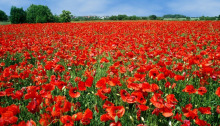John 15: 9-16 & Isaiah 53
Symbols: There all around us aren’t they. We see so many different symbols or logos. They seem to be everywhere. But what is special about a symbol is the fact that we recognise it and we recognise its meaning and its significance.
For instance if I was to ask you what is the symbol for Ferrari, I’m sure many of you would instantly respond the famous prancing horse. That famous yellow badge with the black stallion.
Likewise if I was to ask what is the symbol for the iphone, or the imac you would tell me the famous symbol of an apple with a bite taken out of it.
You see we recognise the symbols instantly. But the symbols are only the reference point. They are purely a visual reminder, a picture that points to something much bigger that lies behind the symbol.
You see, when I see that famous yellow badge with the prancing horse, yes I recognise Ferrari, but more than that, I see a whole history of motorsport, I see something that goes well beyond being a car. I see a thing of sheer brilliance, the best of the best, the heritage, the craftsmanship, the history all rolled up in that little symbol. When you buy a Ferrari you don’t just buy the car, its everything else that comes with it.
Likewise, the apple symbol, you don’t just see the symbol, its everything that it stands for, the cutting edge of modern technological design and advancement. When you buy an apple You don’t just buy the product you buy into the whole package , infact people have been known to be called Apple evanglists!
And very briefly today I want to look at two other symbols.
Firstly, the poppy, it’s a symbol we see every year from October to November, it’s a symbol we all instantly recognise, and it’s a symbol that we know carries a real significance behind the image.
In late 1914, the fields of Northern France and Flanders were ripped open as the First World War raged through Europe’s heart.
The significance of the poppy as a lasting memorial symbol to the fallen was realised by the Canadian surgeon John McCrae in his poem ‘In Flanders Fields’. The poppy came to represent the immeasurable sacrifice made by his comrades and quickly became a lasting memorial to those who died in the First World War and later conflicts. Here’s few lines from the poem:
‘In Flanders fields the poppies blow Between the crosses, row on row, That mark our place; and in the sky The larks, still bravely singing, fly Scarce heard amid the guns below.
We are the Dead. Short days ago We lived, felt dawn, saw sunset glow, Loved and were loved, and now we lie In Flanders fields.’
When fighting ceased in 1918 the mud of the battlefields was allowed to rest and nature began to be restored and before long the wild flowers grew and bloomed including the poppy. The colour of red reminded people of bloodshed and the sacrifice by millions of brave soldiers of their lives. And so the poppy became the symbol of sacrifice. And today it is recognised as the symbol by which we remember all those brave men and women who made the ultimate sacrifice not just in the great world wars but in all conflicts up to and including the present day.
And so today, we pause to remember those who have given their lives in war: the servicemen and women of the armed forces in conflicts of the past and in the present; police and peacekeepers; civilians caught in the crossfire; all whose lives have been so scarred through physical or mental suffering that they will never be the same again. It is in part thanks to them that we are where we are today: as the epitaph reads “For your tomorrow, we gave our today”. It is thanks to their sacrifice that we have our freedom. Now we can’t change what has happened, we can’t even earn or deserve their sacrifice somehow in
retrospect, but we remember them with gratitude, and we live in the light of all who have made our lives what they are.
And as the poppy is a symbol of sacrifice, I also want to look at another symbol of sacrifice. The symbol of the Christian faith, the cross. It’s the Cross on which Jesus made the ultimate sacrifice. You see in Jesus we see a man who is fully human but also fully God. A man who stood for everything good in this world. A man who lived a sin free life. A man who understood the terms justice and righteousness better than anyone. Yet when he was crucified he showed the world what real love was all about. One of His great sayings was in our reading today, it is this: ‘Greater love has no-one than this, that he lay down his life for his friends’ (John 15:13). And that’s what He did for us.
And as Christians, that’s one reason we come to Church each Sunday: We remember all that Jesus did for us. His sacrifice, made for all, so that we might be able to live a life in a right relationship with God. At his last supper with his disciples Jesus said “This is my body, which is broken for you; do this in remembrance of me.” Our faith teaches us always to be mindful, to remember, its important to remember. That doesn’t mean that we are to be backward looking, yearning for an age that is past; quite the opposite. It is because of what God has already done for us, shown in his death and resurrection, that we have our hope for the future, our confidence in the goodness of heaven, the promise of eternal life. And that is also a promise of a life to be lived now, a life of freedom, through his sacrifice we are set free from sin and death. Jesus has won the victory for us.
And so today as we remember the sacrifice of those brave men and women who have obeyed the call of their country, fighting for what they believe to be justice and righteousness, those who have sacrificed so much. Can I urge you to consider the sacrifice of Jesus, which he made for you and for me. A sacrifice made so that we might know God’s justice and be righteous in our lives today.
Through the sacrifices of those who gave their lives we have the opportunity to live life in freedom. But the sacrifice which Jesus made for each one of us, means that we can live life to the full now, it means that we can know God, we can know his forgiveness and know his righteousness and be assured of our eternal future. The question is will you choose to follow the way of the cross today? Will you accept Jesus as your lord and saviour. And today Jesus calls us to a fight. Its not the sort of fight that we might be thinking about, the fight that we see in war zones, but it’s the fight to see the world changed, to see wrongs put right and ultimately and most importantly to see men, women and children won for him.
Sacrifice – it’s costly. For the men and women we remember today, their sacrifice carried a cost. For some it was the ultimate cost. Jesus sacrifice cost him everything. He sacrificed all the riches of heaven, to come to this earth, to die a horrible, gruesome death in my place. In your place. He took our guilt our shame and he nailed it to the tree! But it cost him everything!
I wonder, how do you respond to that. How do you respond to the challenge of Jesus when he said ‘If anyone will come after me, he must deny himself and take up his cross’. To live a Christian life, means sacrifice, what are you willing to lay down for Lord. Maybe you need to give something up? Maybe you need to take something up? What is the Lord challenging you to do today? How will you respond?
Two great symbols of sacrifice – the Poppy and the Cross.


